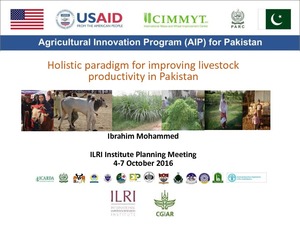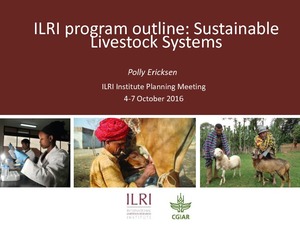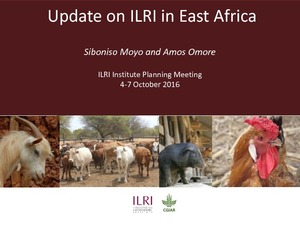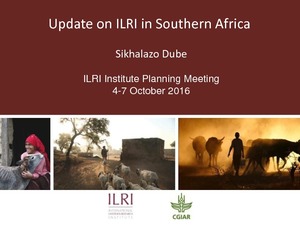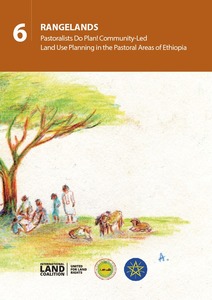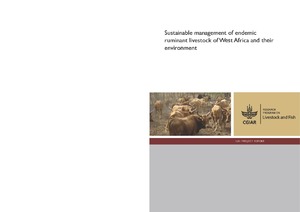ILRI program outline: Sustainable Livestock Systems
Update on ILRI in East Africa
Update on ILRI in Southern Africa
Favoriser la résilience dans les zones arides d’Afrique
This publication aims to provide simple and clear and practical information about the Regional Initiative on Building resilience in Africa's drylands and raise awareness among stakeholders of the Initiative
Directives mondiales pour la restauration des forêts et des paysages dégradés dans les terres arides
Les terres arides couvrent près de la moitié de la surface terrestre et abritent un tiers de la population mondiale. Elles sont confrontées à des défis hors du commun, notamment ceux posés par la désertification, la perte de biodiversité, la pauvreté, l’insécurité alimentaire et les changements climatiques.
Building resilience in Africa’s drylands
To raise awarenesss among focus countries, partners and other target audience about the regional initiative and its relevance to the Organization's strategic objectives.
RANGELANDS IMPROVING THE IMPLEMENTATION OF LAND POLICY AND LEGISLATION IN PASTORAL AREAS OF TANZANIA
No.7 issue of the Rangelands Series goes through experiences of joint village land use agreements and planning.
Pastoralists do plan! Community-led land use planning in the pastoral areas of Ethiopia
This paper consolidates a set of case studies which document how pastoralists plan land and resource use in pastoral and agro-pastoral areas of Ethiopia. These case studies are drawn from the regional states of Afar, Somali, Southern Nations, Nationalities, and Peoples (SNNP), Oromia, and Gambella.
Sustainable management of endemic ruminant livestock of West Africa and their environment
Nomadic Custodians. A Case for Securing Pastoralist Land Rights
A brief on the need to secure land rights for the world’s pastoralists, who manage rangelands that cover a quarter of the world’s land surface but have few advocates.
Monitoring for the spatial distribution of radiation dose by paramotor observation
The Fukushima Daiichi nuclear disaster, which was triggered by the 2011 Tohoku earthquake, released large amounts of radio-nuclides. Soils in wide areas in eastern Japan were polluted by radioactive contamination. Polluted grazing lands are voluntarily unused even five years after the disaster because of the possibility of the consumption of polluted grass by cattle.

